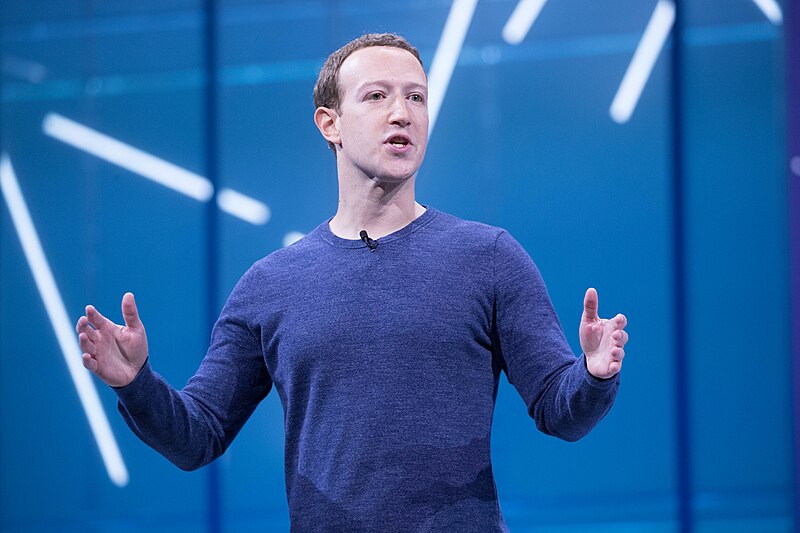“But we really don’t know what these tech companies are. Are they entertainment, or are they media?”
Junior Emma Shi spends hours on Instagram daily and enjoys watching her favorite content creators with similar interests and experiences. But recently, Meta — the parent company of Instagram, Facebook, and Threads — made a controversial move that has left users like Shi questioning its intentions. On Tuesday, Jan. 7, Meta CEO Mark Zuckerberg announced the company would discontinue its fact-checking policies, a decision he attributed to the “cultural tipping point” of the 2024 presidential election.
The longstanding fact-checking system was the result of Zuckerberg’s decision to control false and misleading information on Facebook after President Donald Trump’s 2016 election. With over 80 independent third-party fact-checkers on both Facebook and Instagram, the once “industry-leading fact-checking program” is no longer being celebrated. For Shi, this change was not only abrupt but also disconcerting.
“It’s unsettling,” Shi said. “I have pretty strong views on the recent election, and while I don’t blame these companies for trying to get on President Trump’s good side, it’s unnerving how much power and influence he has. It really shows what the next four years of our country will look like.”
This isn’t the first time politics has influenced social media companies to change their content moderation policies. Since Trump’s Jan. 20 inauguration, Meta has worked to mend its previously strained relationship with the administration. This included a $1 million donation to Trump’s inaugural fund and the appointment of figures like Dana White, CEO of the Ultimate Fighting Championship and a Trump ally, to its board of directors. Zuckerberg has since announced that Meta is now working with the Trump administration to prioritize free speech and “restoring free expression” on all platforms, earning praise from several Congressional Republicans who have argued the fact-checking system was a form of censorship.
“I think that to equate censorship with fact-checking is bizarre,” United States History teacher Annie Miller said. “It’s untruthful. It is concerning that in a democracy, those who have the most power and wealth have this close of an ear to political power.”
Without a fact-checking system, users are now given a larger, unsupervised platform to freely voice opinions. To senior Audrey Johnson, this move seems less about free speech and more about business strategy.
“Right now, President Donald Trump is giving and creating this opportunity to deregulate these businesses and make more money,” Johnson said. “So now these companies are just trying to take advantage of that. We know that highly political and opinionated discourse brings more viewers and gets people to stay engaged with these platforms longer, so by removing the fact-checking system, it allows that type of content to be more prevalent on these platforms.”
According to the Pew Research Center, over half of American adults (54%) used social media as a source of news in 2024 and 59% of X users read news on the platform. Researcher and clinical psychologist Jonathan Chen emphasizes how the lack of a fact-checking system strongly affects young adults and their ability to access credible information online.
“Anyone, regardless of age, who relies on apps such as Instagram or X as primary sources of information is already in a dangerous situation,” Chen said. “But young adults are much more susceptible to being exposed to misinformation online, especially if they lack the motivation to cross-check what they’re seeing online with another reputable news source.”
To replace the fact-checking system, Meta has introduced Community Notes, a crowdsourced model similar to X’s approach. This new system allows users to rate the “helpfulness” of a post as a way to provide community-driven accountability. Despite this, Johnson is skeptical of the new system.
“Having any community members on the Internet rating content for reliability seems flawed to me,” Johnson said. “How are they to know what is factual and what is not? Why are we trusting them? When you have a lot of people [perpetuating biased views], there’s no real way for other users to look at that and know if that rating is biased or not.”
As one of the largest American information technology companies, Miller is concerned that Meta’s removal of the fact-checking system may set a troubling precedent.
“We cannot be fooled,” Miller said. “These people do not see themselves as furthering the goodness of humanity — they’re businessmen who want to make money, and so they’re going to do whatever it takes to increase their revenue. So if one company is doing something that increases their revenue, the others are going to follow — this is a whole other, different ballgame when these businesses are purveyors of information.”



































